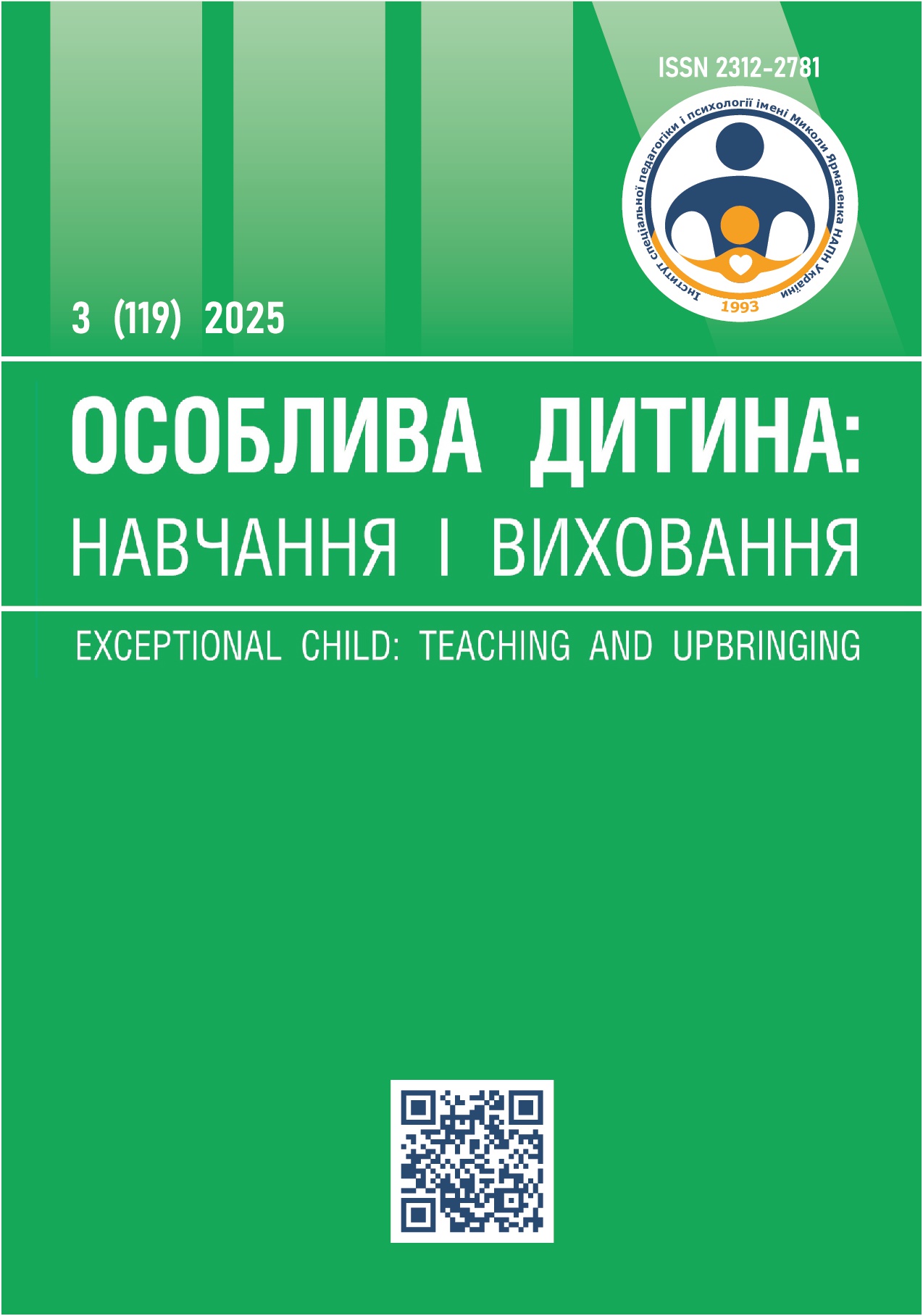SIGN LANGUAGE POLICY IN THE EXPERIENCE OF CIVILIZATION PROGRESS
Abstract
The study of the language policy of sign language users is due to the development of certain aspects at the state (legislative, legal, educational, socio-cultural) levels, the search by scientists and practitioners for more effective approaches to academic development, education using the national sign language (NSL) of such education seekers. On the one hand, these approaches should meet the needs and capabilities of NSL users and be consistent with society's demand for the training of a competent, educated deaf individual who identifies with the deaf community, is a member, and becomes competitive in independent life. The goal is to reveal and identify trends in the development of sign language policy in the European Union. Methods: theoretical (analysis of scientific sources on the problem of multiculturalism (Strauss & Corbin, 1990; J. Fishman, 2012, etc.) taking into account changes in a globalized society; qualitative method for understanding the experience of parliamentarians regarding sign language users in the countries of the European Union, information collection, study of sources, observation, analysis of documents, systematization, generalization, deeper understanding of experience, prospects for future member states of the European Union (Creswell, 2013), analysis, comparison, generalization, conclusion. Results and conclusions. The trend features of the development of the pan-European educational space regarding the development of language education (unevenness and contradictions) at the beginning of the 21st century are oriented towards the harmonization of inclusive standards when developing conceptual principles for the education of the Deaf and hard of hearing. The categories of “language planning of sign language”, “sign language policy”, “language support of sign languages”, “sign language education” have not been used as methodological principles to this day, although it is worth noting that isolated attempts have been made in individual countries.
There is a peculiar lack of information on sign language policies that concern sign language, both as a language of instruction and as a subject of study. It is clear that language planning activities (sign language acquisition, sign language status, corpus planning, coordination of legislative initiatives, etc.) are carried out in many countries, but, as a rule, remain unexplored. It is obvious that this is a relevant issue that needs to be addressed in the context of sign language policy for teaching, learning, communication and assessment of national sign language, language support taking into account the European context, especially since Ukrainian Society of the Deaf became a full member of European Union of the Deaf on May 28, 2022.
References
Особлива дитина: навчання і виховання. №3(119). 2025. с. 96-111


